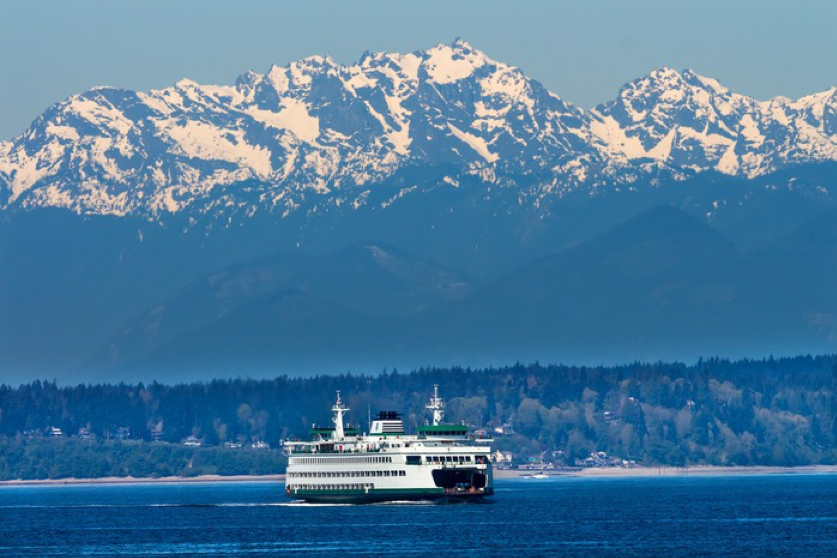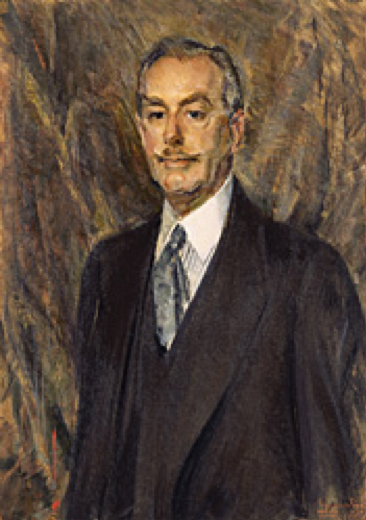
My “office” these days is a scarred up antique table at Folio, Seattle’s membership non-profit for people who love books. Out my window this morning is a quintessential Northwest scene with the January sun reflecting off the Bainbridge Island ferry’s trailing wake and the dark blue waters of Elliott Bay. Further west are the peninsula’s foothills and the sharpened peaks of the Olympic mountains. So, while the rest of the country is being cold-soaked by a Polar Vortex, I’m in one of my favorite settings, surrounded by books and the natural beauty of the Northwest.
Founded by David Brewster, a serial literary entrepreneur, Folio is located one floor above Pike Place Market, where it functions as a library, event space, work area for writers, and book lover’s sanctuary. Since opening its door three years ago, Folio has assembled a rich collection of books through the donation of private library collections supplemented by the purchase of noteworthy current releases.
When new books arrive at Folio it’s common to find duplicates of books already in the collection, and in that case some are sold, some donated to school libraries, and others placed on a cart outside the door and given away. These give aways change on a daily basis and I never pass the cart without looking to see what’s on it.
Today, on my way to lunch, one title caught my eye – Acheson Country – a memoir by David Acheson of his father, Dean Acheson, former Secretary of State and all-around American statesman. I might have ignored it had it not been for the fact that the senior Acheson was the commencement speaker at my law school graduation in 1965.

On that long ago afternoon in Berkeley, the former diplomat and advisor to presidents gave a graduation address that was memorable not for the advice it contained but for the aura surrounding its speaker. There, in the hot California sun, Mr. Acheson was, as my father might have said, “bandbox” perfect. The expression is dated now, but maybe not inappropriate in this case. The reference is to the container or “bandbox” used to store and preserve the condition of a clergymen’s vestments in earlier times. In the vernacular, according to the Oxford Dictionary, it is used to “convey the smartness or neatness of someone’s appearance.”
That expression from bygone days perfectly describes the Dean Acheson I observed that day. His neatly trimmed trademark mustache, bespoke steel-gray suit, starched white shirt, pinched regimental tie, and spit-shined shoes reinforced the impression that I was in the presence of one of the 20th century’s greatest statesmen. My father and mother, who attended the graduation, both rock-ribbed Republicans, were equally in awe of Mr. Acheson as they listened to him in the courtyard at Boalt Hall.
Yesterday, reading the memoir’s foreword by historian David McCullough, took me back to that day and gave me an opportunity to revisit the major figures and events of America’s most critical decades in the last century and to measure their contributions against those of today’s leaders.
Dean Acheson’s biography reveals a scholarly but pragmatic man, a Groton and Yale patrician who forged a unique bond with Harry Truman, the quintessential common man. Together, they, with the help of others crafted the institutions and policies that maintained the world order for 70 years until recent disruptions upset that balance. His post-WWII foreign policy accomplishments included the establishment of the World Bank, International Monetary Fund, Truman Doctrine, Marshall Plan, United Nations, and the creation of NATO. And, it was he who, during the early 1950s strongly defended State Department employees whose loyalty and patriotism were under attack by Senator Joseph McCarthy. He remained an important advisor to Truman when the US entered the Korean War and participated in the controversial decision to fire General Douglas MacArthur during that conflict.
Mr. Acheson left government service in 1953 and entered private practice in Washington where he remained a trusted advisor to presidents Kennedy and Johnson. In 1964 he was awarded the Presidential Medal of Freedom and in 1970 the Pulitzer Prize for History for his memoir, Present at the Creation: My Years in the State Department. His son’s memoir is an important reminder of the importance of character, diplomacy, and historical perspective. His was a pivotal time in American history, and the contrast with today’s leaders is stark. Dean Acheson, George Marshall, George Kennan, Henry Cabot Lodge II, and Clark Clifford were all public servants who dedicated years to public service.
As world powers jockey for position in the 21st century, it’s clear that America has fallen from grace and is struggling to find its place in the world order. The Trump administration does not appear to have a comprehensive world view. Foreign affairs is a chess game that requires a grasp of history, culture, politics, economics, and military strategy. Donald Trump is purely transactional. His guiding star is his own self-interest. He gathers ideas by watching Fox News, denigrates his intelligence and national security advisors, and doesn’t read, understand or value the lessons of history that should be guiding him in the global chess match. Is it any wonder he is being played so easily by a former KGB functionary? Why else would he want to pull out of NATO or shred the Paris Climate Accords, Trans Pacific Partnership, Non-Proliferation and Iran Nuclear Treaties? These are the organizations and institutions that hold the world together and keep war at bay.
Today, the US Secretary of State is an ambitious, smug former Congressman from Kansas who’s attached himself to Donald Trump’s too long, too big, too black overcoat’s coattails and now smiles and prostrates himself with murderous dictators like Saudi’s Mohamed Bin Salman and Turkey’s Recep Erdogan. I don’t want to be pessimistic, but, in light of our present predicament, if Dean Acheson was “present at the creation“ will we have to write that we were present at the destruction? I hope not, but I’m not sure.
As I write this I’m reminded of the many outstanding US Foreign Service officers I’ve known, especially Angela Dickey, who was interim Consul General in Ho Chi Minh City when I was there. I know she shares my concern for the shredding of Foreign Service professionals at the State Department.
At the moment I’m pinning my hopes on another patrician public servant, Robert Swan Mueller III, a graduate of St. Paul’s School, Princeton University, and the University of Virginia Law School who also earned a Master’s in international studies from NYU and served as a Marine Corps officer in Vietnam. His public service includes time as a US Attorney, Assistant Attorney General, and twelve-years as Director of the FBI. While at the Justice Department he oversaw the investigation and prosecution of those responsible for the bombing of Pan Am 103 where 270 lives, including three friends of mine, were lost.
I’m glad to have serendipitously run across Acheson Country, where my memory was refreshed and faith restored. Dean Gooderham Acheson was a giant among giants, and even though my connection was only a glimpse of the man late in his monumentally important career, I feel honored to have been present and to have heard him speak. I’m sure his words were inspiring, but what I remember most is the imposing figure who made me feel I was in the company of greatness. I think Robert Mueller can stand beside Acheson as an American hero and patriot. It’s possible that future generations will praise him for turning the American ship away from its destructive course and someone like me will read his daughter’s recollections – maybe it will even be called Mueller Country.
“Always remember that the future comes one day at a time.”
Dean Acheson
































Thanks Jack. RJ
But did you take the book? I hope so. I’ll borrow it.
Walt: I didn’t take it but I think it’s still there for the taking.